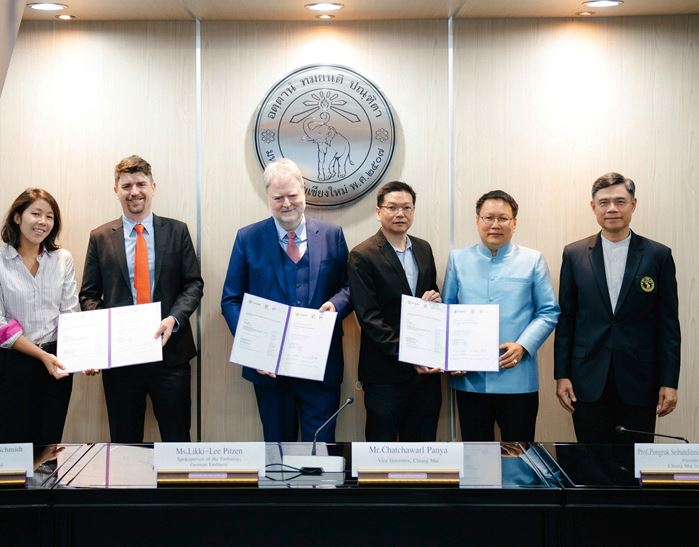Thailand – In Chiang Mai, Thailand, German Enapter and its partners have started work on a project to build Southeast Asia’s first green hydrogen learning facility.
The project will be a collaboration between Enapter, the German state-owned organization GIZ, and Chiang Mai University’s Energy Research and Development Institute of Nakornping. It was launched with a contract signing ceremony and a visit to the Phi Suea House hydrogen showcase (ERDI).
A training facility that creates and provides practical courses employing technology, as well as a distinctive green hydrogen demonstration site, will make up the green hydrogen knowledge hub in Chiang Mai. The center will foster regional cooperation, help position Chiang Mai and Thailand as leaders in the development of modular hydrogen system technology, and enable the expansion of hydrogen infrastructure in the region by providing training for project developers, integrators, and other energy professionals.
Thailand – Germany cooperation
One of the most promising substitutes for fossil fuels has emerged: green hydrogen, which is produced from renewable energy sources. The public and corporate sectors of Thailand and Germany are collaborating to promote Thailand’s national goals, which include aggressive decarbonization ambitions. Hydrogen is seen as a critical component in accomplishing these targets.
The International Hydrogen Ramp-up Program (H2Uppp), an initiative run by the GIZ on behalf of the German Federal Ministry for Economic Affairs and Climate Action, is used to carry out the project (BMWK). It advances the work begun at Chiang Mai’s Phi Suea House, a complex of homes that in 2015 became the first self-sufficient development in the world to deploy a sustainable energy system based on hydrogen energy storage. It was one of 32 “Hydrogen Valley” large-scale hydrogen flagship projects throughout the world that the European Commission named in 2021.
Combining solar and hydrogen
Sebastian-Justus Schmidt, the CEO of Enapter, created Phi Suea House to demonstrate the viability of combining solar energy and green hydrogen technology. It has since grown into a center for hydrogen activity and a playground for technology innovation. The agreement will include setting up the knowledge center.





